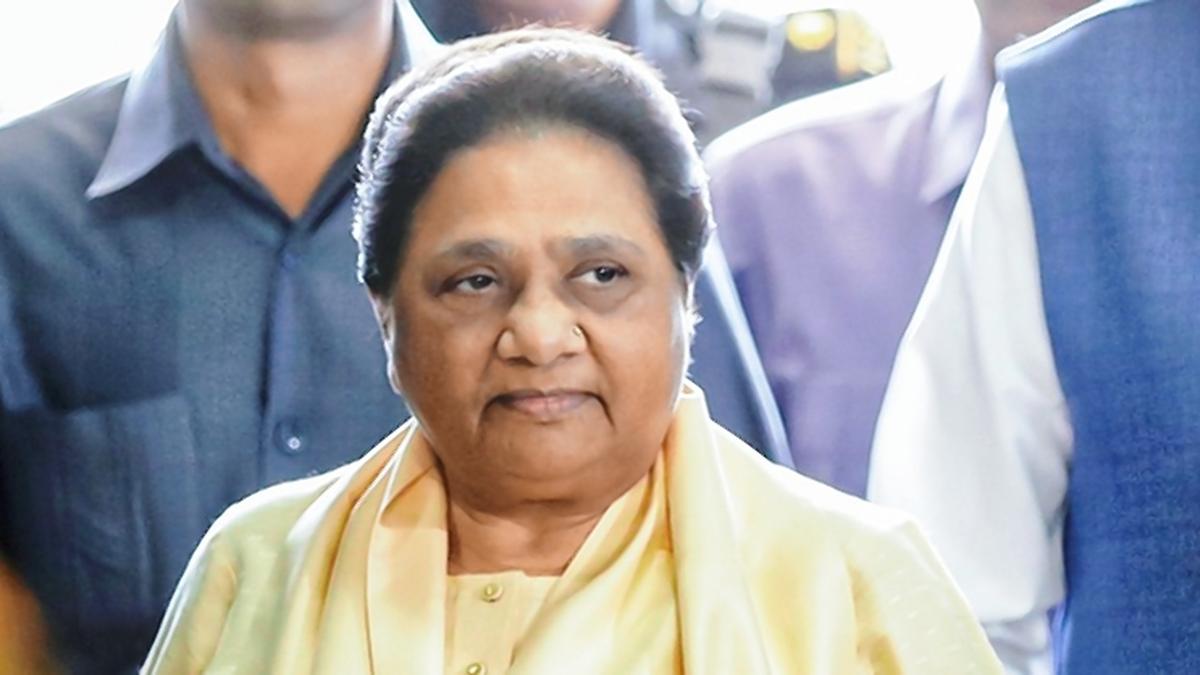The Bahujan Samaj Party (BSP) under the leadership of Mayawati continues to fight for the upliftment of the Bahujan Samaj, advocating for their self-esteem and empowerment. Mayawati, on the 18th death anniversary of BSP founder Kanshi Ram, reiterated her party’s commitment to the cause, criticizing the BJP, Congress, and Samajwadi Party for hindering the progress of the Bahujan Samaj. This article will delve deeper into Mayawati’s statement, exploring the BSP’s vision for the Bahujan Samaj, their criticism of other political parties, and the challenges they face in achieving their goals.
The BSP’s Vision for the Bahujan Samaj: Self-Esteem and Empowerment
Mayawati’s statement highlights the BSP’s core objective: empowering the Bahujan Samaj. This objective is rooted in the ideology of Kanshi Ram, who believed that the Bahujan Samaj, including Dalits, Adivasis, OBCs, and minorities, have been historically marginalized and denied their rightful place in society. The BSP seeks to rectify this injustice by:
Fostering Self-Esteem and Identity:
The BSP promotes the concept of ‘Bahujan Ekta’ (unity of the masses) to instill a sense of collective identity and pride among the Bahujan Samaj. This involves raising awareness of their historical contributions and dismantling negative stereotypes.
Empowering Through Political Participation:
The BSP actively encourages the Bahujan Samaj to engage in the political process, advocating for their rights and representation. This includes mobilizing voters, fielding candidates from their communities, and seeking political power to enact policies that benefit them.
Addressing Socioeconomic Challenges:
The BSP believes that poverty, unemployment, and lack of access to resources contribute to the marginalization of the Bahujan Samaj. They strive to address these issues through policies aimed at economic development, job creation, and social welfare schemes.
Criticism of Other Political Parties: Obstacles to the Bahujan Samaj
Mayawati’s statement sharply criticizes the BJP, Congress, and Samajwadi Party, labeling them as obstacles to the Bahujan Samaj’s quest for self-esteem and empowerment. This criticism stems from the BSP’s perception that these parties:
Lack of Genuine Commitment to the Bahujan Samaj:
The BSP alleges that the BJP, Congress, and SP prioritize their own political interests over the needs of the Bahujan Samaj. They claim that these parties utilize the marginalized communities for electoral gains without genuinely addressing their concerns.
perpetuating caste-based inequalities:
The BSP accuses the BJP, Congress, and SP of exacerbating caste divisions and perpetuating existing inequalities. They argue that these parties exploit caste identities for political maneuvering instead of fostering social harmony and inclusivity.
Ignoring the plight of the marginalized:
The BSP contends that the BJP, Congress, and SP fail to effectively address the socioeconomic challenges faced by the Bahujan Samaj. They highlight the persistent poverty, unemployment, and lack of access to essential services as evidence of their neglect.
BSP’s Struggle for Political Power: A ‘Ruling Class that Gives’
Mayawati’s call for the BSP to be “the ruling class that gives instead of those who ask” signifies their ambition to be a government that truly champions the interests of the Bahujan Samaj. They seek to overturn the traditional power structures that they believe have historically deprived the Bahujan Samaj of their rights and resources.
Challenging the Status Quo:
The BSP’s struggle for political power represents a challenge to the existing political landscape, dominated by parties they perceive as hostile to the interests of the Bahujan Samaj. Their goal is to establish a government that prioritizes their welfare and upliftment.
A New Approach to Governance:
The BSP’s vision of a “ruling class that gives” implies a shift in governance. They seek to implement policies that empower the Bahujan Samaj, including social justice initiatives, economic empowerment programs, and education reforms.
Overcoming Historical Marginalization:
The BSP’s quest for political dominance is driven by a desire to overcome the historical marginalization of the Bahujan Samaj. They strive to create a society where they are no longer treated as second-class citizens, but rather as equal members of the nation.
The Challenges Ahead for the BSP: Building Unity and Winning Elections
The BSP’s ambition to achieve political power and create a society where the Bahujan Samaj are empowered faces significant challenges:
Fragmentation within the Bahujan Samaj:
The Bahujan Samaj is a diverse group with various identities and political interests. This internal fragmentation poses a challenge to the BSP in building a cohesive political force.
Political Opposition and Manipulation:
The BJP, Congress, and SP remain formidable opponents, employing various strategies to counter the BSP’s efforts to win elections and achieve political power. These strategies may include caste-based polarization, electoral alliances, and manipulation of political discourse.
Economic Development and Social Upliftment:
Achieving meaningful social and economic change requires the BSP to effectively implement policies that address the complex challenges faced by the Bahujan Samaj. This involves tackling systemic inequalities, creating employment opportunities, and improving access to quality education and healthcare.
Social and Political Discourse:
The BSP faces a challenge in shaping the social and political discourse in a way that benefits the Bahujan Samaj. This involves countering negative stereotypes, advocating for social justice, and promoting an inclusive narrative that challenges traditional power structures.
Takeaway Points
- The BSP under Mayawati continues to champion the cause of the Bahujan Samaj, emphasizing self-esteem, empowerment, and social justice.
- They vehemently criticize the BJP, Congress, and SP, alleging that these parties fail to represent the interests of the Bahujan Samaj and perpetuate inequalities.
- The BSP’s quest for political power aims to create a ‘ruling class that gives,’ prioritizing the needs and aspirations of the Bahujan Samaj through targeted policies and initiatives.
- Despite challenges like fragmentation within the Bahujan Samaj, strong political opposition, and complex socioeconomic issues, the BSP remains dedicated to achieving their vision for a more equitable and inclusive society.




